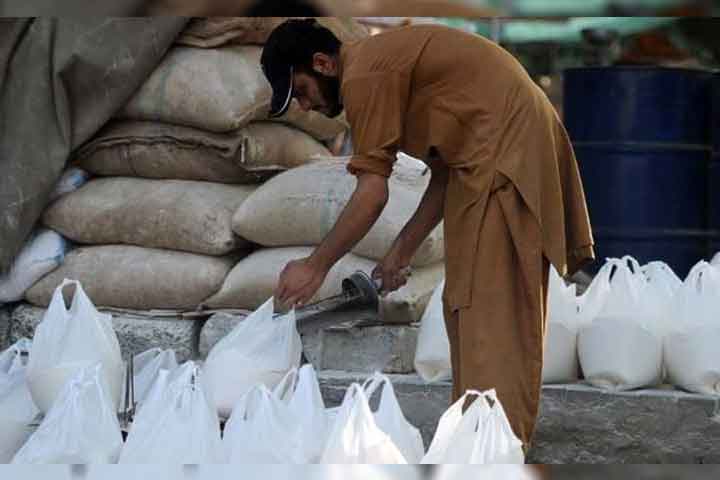Smuggling chokes wheat supply to needy in Pakistan
Rampant smuggling, black marketing and hoarding are key reasons for the unprecedented wheat crisis across Pakistan, more so in the marginal provinces like Pak occupied Kashmir and Gilgit-Baltistan areas.
In these far-flung areas, people do not not even know that wheat trucks meant for them are diverted to Afghanistan for huge profits by a cabal of millers, wheat stockists and government officials.
The situation is set to get even more as the Pakistan government has only managed to procure 4.9 million tons of wheat under the procurement campaign for the current as against the target set for 7,8 million tons. It means Pakistan has managed roughly half of wheat grains which should be safely stored for public use.
The situation in the occupied Kashmir and Gilgit Baltistan is getting unsettled by frequent street protests, power shortages, business shutdowns, causing widespread public misery and anger.
The condition of the hapless people is reflected in the placard held by children and their parents protesting against wheat shortage in the Gurez area of Neelum valley–“Flour is expensive [and] death is cheap”. Early this year, businesses and people shut down in Gilgit Baltistan over land reforms, imposition of taxes, wheat shortage and prolonged blackouts in the region with the provincial government failing to convince the people to give up agitation. Over 10 districts suffered major disruptions with religious and political parties supporting the public anger against the government.
In Pak occupied Kashmir, the situation is even worse with daily reports of stampedes and fights over wheat distribution. Thousands wait out in long queues and when trucks arrives, a stampede breaks out making it almost impossible for young children and women to get their share of wheat flour. Clashes are common in the area.
The stark shortage of wheat is clear from the statistics–the area needs at least 3300 tons of wheat flour but manages to get only 2400 tons. This leaves a huge gap, leaving thousands to either go back without wheat flour bags or buy
According to the English daily, Dawn, despite huge imports and availability of local crop, consumers were forced to cough up Rs2,315-3,160 for a 20kg flour bag as compared to Rs800-1,500 exactly a year back.
One of the most serious, and ignored, complaints is that of large scale smuggling of wheat from Punjab and Sindh to Afghanistan and other areas. Long lines of trucks and tractor trolley laden with wheat are taken from Hyderabad, Mirpurkhas, Shahaeed Benazirabad, Sukkur and Larkana divisions to Afghanistan, and through Karachi to Balochistan areas.
It was reported that influential businessmen were paying Rs75,000 to Rs 100,000 per vehicle as bribe to food officials, administrations of districts and police officials to cross their wheat-loaded heavy vehicles into Afghanistan. Over 200 such vehicles every day move to Afghanistan from Johi, Khairpur Nathan Shah, Mehar and Dadu talukas alone. The total number of such smuggling vehicles could outnumber 1000 every day.
Farmers allege that government officials were deliberately withholding supply of gunny bags to all the wheat growers to enable shortage of supply.
Besides smuggling, it is hoarding which is keeping wheat an expensive food item. Millers have reportedly stocked up to 200,000 bags of 100kg, many of which are later on sold in the open market at higher price. The abject failure of the federal government could be seen in Prime Minister Shehbaz Sharif most recent (May 12) direction to take action against hoarders and smugglers of wheat flour. It was the same thing which he has been saying every time the wheat crisis hits headlines.
Source: alarabiyapost.com
20 May 2023,13:41



















 Live Tv
Live Tv


